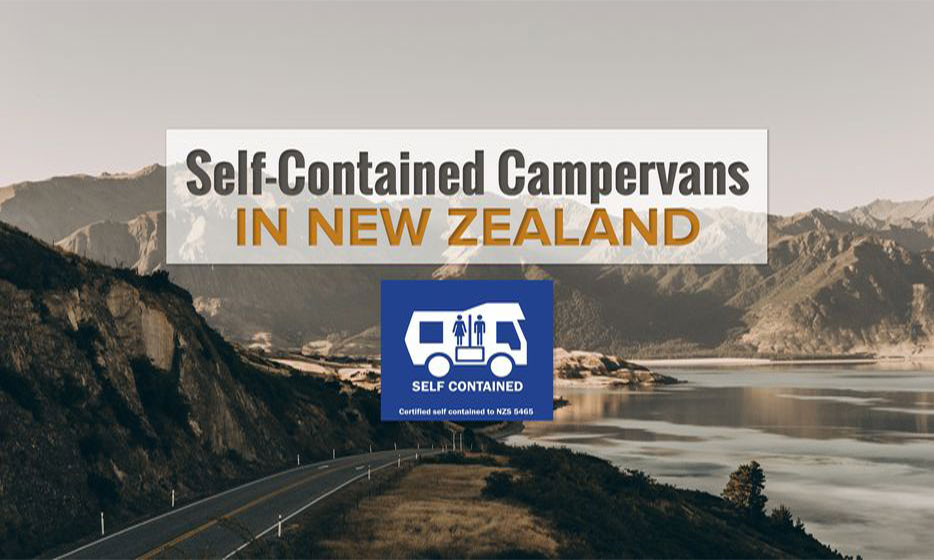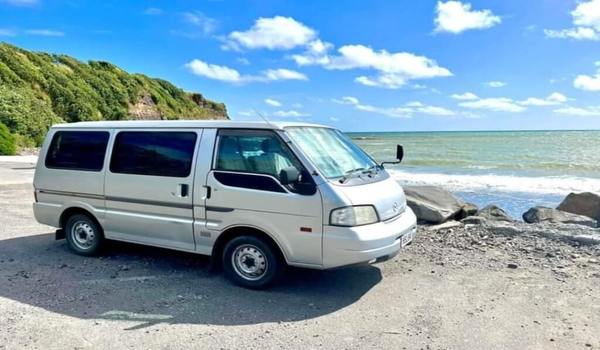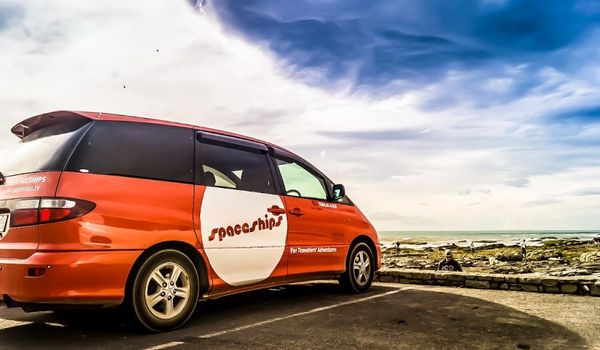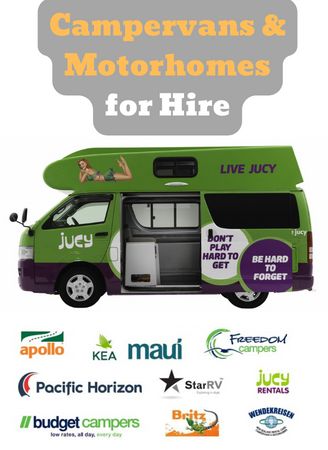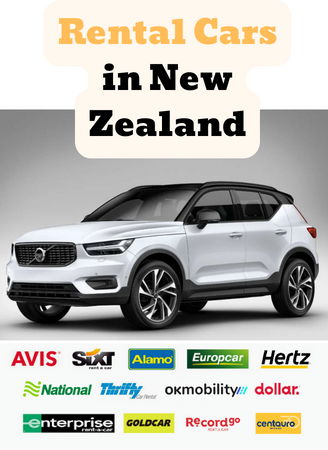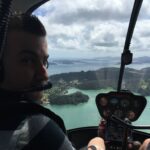✅ Last Update: Apr 22, 2024 @ 1:33 pm
Whether you want to invest in a Self-Contained Van or Campervan, or want some extra info, you will find everything you need here.
Freedom camping in New Zealand is a major attraction for locals and international tourists, with this beautiful country’s colossal array of scenic destinations and unique terrains.
One of the most popular ways to explore the various landscapes is by buying or hiring a Self-Contained Campervan, and with so many paid and free camping sites spread across the country, Freedom Campers will be spoiled for choice.
1. General Information About Self-Contained Vans & Campervans in New Zealand
Exploring New Zealand is an awe-inspiring experience, but doing it in a campervan brings new excitement and adventure.
Unfortunately, the laws regarding camping and travelling in a campervan have tightened up, and travellers must know the do’s and don’ts for camping in NZ.
Many camping areas specify the type of campervan permitted, and failing to follow these rules can lead to a hefty fine of up to $200.
While you can still travel around New Zealand in non-self-contained campervans, there are obvious benefits to choosing a self-contained vehicle.
We have compiled a general guide to help make the final decision when selecting the type of vehicle you would like to decide and other necessary information to consider.
2. Minimum Requirements for Self-Contained Certification
Suppose you purchase a licensed campervan or plan on getting the vehicle certified independently. In that case, these are the minimum requirements that every self-contained campervan needs to meet before being approved:
1. Fresh water tanks: 4 litres per person per day (12 litres per person minimum); e.g., 24 litres are required for two people in 3 days.
2. Sink: Via a smell trap/water trap connected to a water-tight sealed waste water tank.
3. Grey waste water tank: The tank should hold at least 4 litres per person daily. Suppose the tank has less than it should be vented and monitored.
4. Evacuation hose: At least 3 meters for fitted tanks or long enough to connect to a sealed portable tank.
5. Rubbish bin: Sealable rubbish container with a lid.
6. Toilet (portable or fixed): Minimum capacity 1 litre per person per day (3-litre net holding tank capacity per person minimum)
A portable toilet must be adequately restrained or secured when travelling. The portable toilet shall be usable within the motor caravan or caravan, including sufficient head and elbow room whenever required, even with the bed made up.
📢 2025 is becoming a year of changes for self-contained vehicles.
Please refer to this guide for an update on the requirements and additional information: Self-Contained in New Zealand | The Ultimate Guide
3. Benefits of Using a Self-Contained Van or Campervan in New Zealand
Some benefits of using a self-contained campervan are:
- Spacious Layout: Self-contained campervans offer more room than traditional ones, featuring couches, tables, and an equipped kitchen space.
- Convenient Setup: The design allows travelers to enjoy the sights and scenery without leaving the campervan, providing a comfortable and efficient setup.
On the other hand:
- Older-Style Campervans: Typically have a bed towards the back.
Consider the following financial benefits:
- Initial Investment: While the upfront cost of a self-contained campervan may be higher, the spaciousness and savings on camping fees make it a worthwhile investment.
- Camping Sites in New Zealand: Most sites are free or charge a minimal fee, offering a cost-effective alternative to accommodations in hostels, motels, or hotels.
4. Avoid Fake Self-Contained Certificates by Local Unlicensed Dealers
When purchasing a self-contained campervan, it is essential to check that the vehicle is licensed, roadworthy, and meets all the requirements set out by NZ laws.
Registered car dealerships should give you all the relevant information before purchasing the vehicle and give you a certification corresponding to the vehicle’s windshield license.
This should have all the information you require and be valid upon the date of purchase.
5. Waste Water Disposal
While the joys of free camping are innumerable, there are a few responsibilities that you need to remember.
The first and most important task to remember is that it is your responsibility to dispose of all wastewater safely and environmentally friendly.
New Zealand has several “dump stations” available for campers to eliminate wastewater.
These stations can be located on most maps, camping apps, and all i-SITE visitor information centers.
6. Should You Buy or Rent a Self-Contained Campervan?
Before making significant investments, weigh the pros and cons of renting versus buying a campervan.
If you only intend to travel for 6–8 weeks, renting is the way. However, if you have planned a trip that will exceed the 2-month mark, buying and selling a campervan might be the right choice for you.
Selling your newly purchased campervan in peak season would likely see you making 100% of your money back, but even in the winter months, you might be surprised at the return you receive.
In New Zealand, many campervan options abound, each with unique deals and prices. Spaceship Rentals tops our list of budget-friendly choices and widespread locations. If luxury is your aim, consider exploring other rental providers.
👉 For additional information about Spaceship Rentals, explore their booking system here: Spaceship Rentals
7. Top 3 Most Popular Self-Contained Campervans (brand & model)
Shift your focus from German, French, or USA manufacturers—Japan takes the lead when it comes to campervans.
- Toyota HI ACE: Picture this campervan like a favourite pair of jeans—comfortable, reliable, and poised to conquer the world. As a standout model in the campervan market, the Hi-Ace is a preferred choice for many rental companies, often found in excellent condition with over 300,000 km on the clock.
- Mitsubishi Delica or L300: Mitsubishi offers versatility with options like the Delica or L300. Specifications may vary, but one constant remains—these campervans are built tough, sturdy, and primed for unforgettable adventures. Endurance, reliability, and strength define their essence.
- Nissan Caravan: The Nissan Caravan is a frequent sight on the road, captivating attention with its reliability, resilience, and readiness for New Zealand adventures.
While Japanese campervans currently dominate the market, a few tried-and-true European models have covered many happy kilometers.
Exercise caution regarding repair costs, as they can escalate swiftly, and no freedom camper wants their travel budget drained by pricey car repairs.
8. Seasonal Prices for Buying Self-Contained Vans and Campervans
The travel and tourism industry is strongly influenced by the seasons, and the campervan market is no different.
Prices can sometimes fluctuate by 50%, but Travel Cars NZ is still one of the most competitive dealerships in the market.
The market influences Travel Cars prices, but we offer 12 months of mechanical warranties, on-road assistance, and a buy-back option, making us the first choice for domestic and international freedom campers.
9. What Can You Expect to Pay?
Travel Cars NZ has various options to suit every traveller. Whether you are a solo traveller, an adventurous couple, a group of friends, or a small family, we have the ideal option.
Most self-contained campervans go for between NZ$9,000 and NZ$15,000, while non-self-contained campers can be purchased for less than NZ$7,000.
🚐 If you are still on the fence about renting or buying, it might be a good idea to consider reading our 12 Tips for Buying a Campervan in New Zealand.
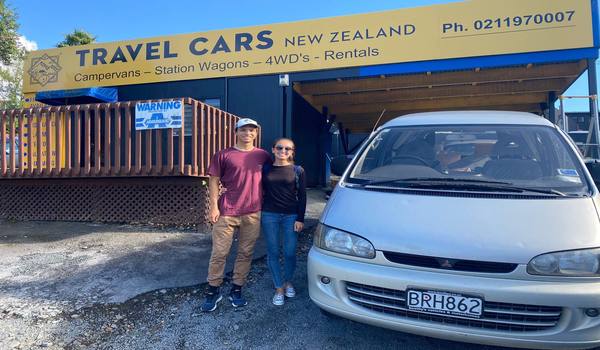
🧑💻 Frequently Asked Questions about Self-Contained Vans & Campervans in New Zealand
1. What is a self-contained vehicle?
A self-contained vehicle is equipped with camping facilities, including sleeping, cooking, and sanitary amenities.
It must meet specific criteria outlined by the New Zealand Motor Caravan Association (NZMCA) to be certified as self-contained.
2. How can I identify a self-contained campervan?
Look for a blue and white sticker on the vehicle, indicating that it is certified as self-contained. This sticker includes a unique identification number.
3. Can I freedom camp in a self-contained campervan?
Yes, self-contained vehicles are allowed to freedom camp in designated areas. However, it’s crucial to follow local regulations and respect the environment.
4. Are there restrictions on where I can park or camp in my self-contained van?
While self-contained vehicles have more freedom, certain areas still have restrictions.
Always check local bylaws, and be aware of any signage indicating where camping is prohibited.
5. How do I get my vehicle certified as self-contained?
You must meet the NZMCA’s self-containment standard to certify your vehicle. This includes having specific equipment like a toilet, fresh water storage, wastewater storage, and a rubbish bin.
You can contact the NZMCA or a certified self-containment officer for the inspection.
6. Are there costs associated with self-containment certification?
Yes, there is usually a fee for the inspection and certification process. Costs may vary, so it’s advisable to check with the certifying officer.
7. What are the benefits of having a self-contained vehicle?
Self-contained vehicles have more freedom to camp in various places, including some scenic and remote locations. This allows for a more flexible and adventurous travel experience.
8. Can I use public facilities if I have a self-contained vehicle?
While you can use public facilities, self-contained amenities allow you to camp in more secluded areas where public facilities may not be available.
9. Is there a specific code of conduct for self-contained vehicle owners?
Yes, there is a code of conduct outlined by the NZMCA that self-contained vehicle owners are expected to follow. This includes respecting the environment, other campers, and local regulations.


